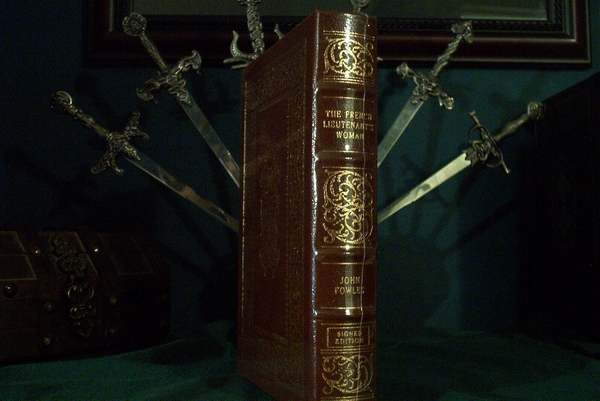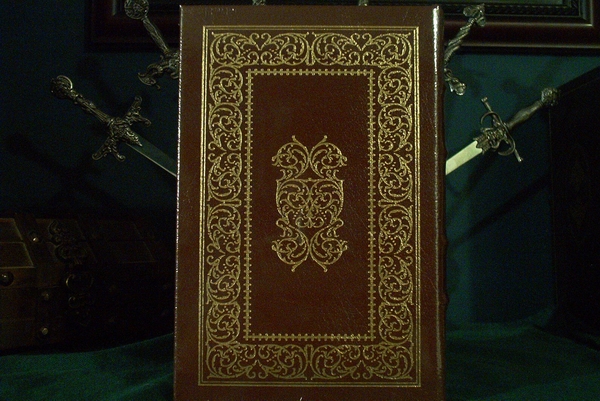Easton Press John Fowles books
The French Lieutenant's Woman - signed modern classic - 1999The Magus - 2014
Franklin Library John Fowles books
The French Lieutenant's Woman - signed limited edition - 1979
The Collector - signed limited edition - 1982
(This page contains affiliate links for which we may be compensated.)
Writer John Fowles
John Fowles (1926–2005) was an influential and highly regarded English novelist and essayist known for his thought-provoking and often experimental works that challenged traditional narrative conventions. Born on March 31, 1926, in Leigh-on-Sea, Essex, England, Fowles emerged as a prominent figure in post-World War II British literature. Fowles initially pursued a degree in French at the University of Edinburgh but later switched to studying philosophy at New College, Oxford. His academic background in philosophy greatly influenced his writing, as evidenced by the philosophical themes and existential questions that permeate his novels.
In 1963, Fowles achieved widespread acclaim with the publication of his first novel, The Collector. This psychological thriller explores themes of obsession and power dynamics as a lonely clerk kidnaps a young art student. The novel's success established Fowles as a writer with a keen understanding of psychological complexity and an ability to captivate readers with his explorations of human nature. Fowles continued to challenge literary norms with his subsequent works, particularly the highly acclaimed The Magus (1965), which delves into the complexities of identity, reality, and existentialism. The novel, set on a remote Greek island, is known for its intricate narrative structure and the blurred lines between truth and illusion.
One of Fowles' most celebrated works is The French Lieutenant's Woman (1969), a historical novel set in Victorian England. This novel not only serves as a compelling love story but also provides a postmodern commentary on storytelling itself, with Fowles occasionally breaking the fourth wall to address the reader.
Throughout his career, Fowles displayed a willingness to experiment with narrative form and challenge conventional storytelling techniques. His interest in philosophy, psychology, and existentialism permeated his works, making them intellectually stimulating and distinct within the literary landscape. Beyond fiction, Fowles expressed his views on literature and society through essays and reflections. His non-fiction work includes The Aristos (1964), a collection of philosophical musings, and Wormholes: Essays and Occasional Writings (1998), a compilation of his non-fiction pieces. John Fowles passed away on November 5, 2005, in Lyme Regis, Dorset, leaving behind a legacy of thought-provoking and innovative literature. His novels continue to be studied and appreciated for their intellectual depth, narrative experimentation, and exploration of the human condition.
The French Lieutenant's Woman
The Collector

